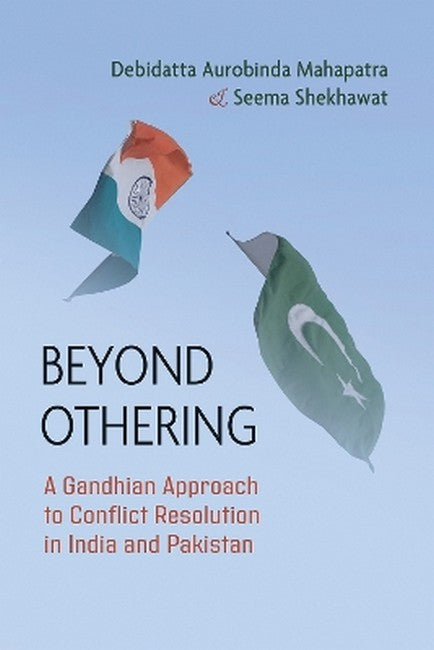Debidatta Aurobinda Mahapatra is professor of political science at the Florida State College at Jacksonville. Seema Shekhawat teaches politics at the University of North Florida. She is also an Honorary Fellow at Royal Holloway, London. She is the author of Gender, Conflict and Peace in Kashmir.
Request Academic Copy
Please copy the ISBN for submitting review copy form
Description
Preface Introduction: Partition, South Asian Conflict, and Gandhi 1. Gandhian Conflict Resolution 2. Othering, Clash of Visions, and Partition 3. Post-partition South Asia 4. Promoting Belonging Conclusion: Beyond Othering Notes Bibliography Index
Conflicts between individuals and nations have complex origins, the commonest being the process of 'othering' or putting them outside the pale of normal relations. This book is an excellent example of how the process works and the application of the Gandhian conceptual framework. It throws considerable light on South Asia and should interest students of the region as well as international relations in general. I recommend it strongly.-- "Bhikhu Parekh, House of Lords, author of Rethinking Multiculturalism: Cultural Diversity and Political Theory" In this immensely valuable study, the authors confront us with the philosophical and practical values of Gandhian conflict resolution in the context of the othering mindset in the South Asian region...This book invites us to explore new pathways for peacebuilding, by replacing traditional power structures which continue to create violence, domination, and coercive hierarchies, with structures based on nonviolence, inclusion, and co-existence.-- "Ramin Jahanbegloo, O.P. Jindal Global University" Beyond Othering demands that we refuse to accept the status quo of continued violence in the name of "stability," that we recognize the psychological roots that underpin conflict, and that we shift from strategies of conflict management to ones of conflict transformation. In doing so, the book is an important counterweight to prevailing approaches in both scholarship and policy.-- "H-Net"

